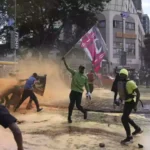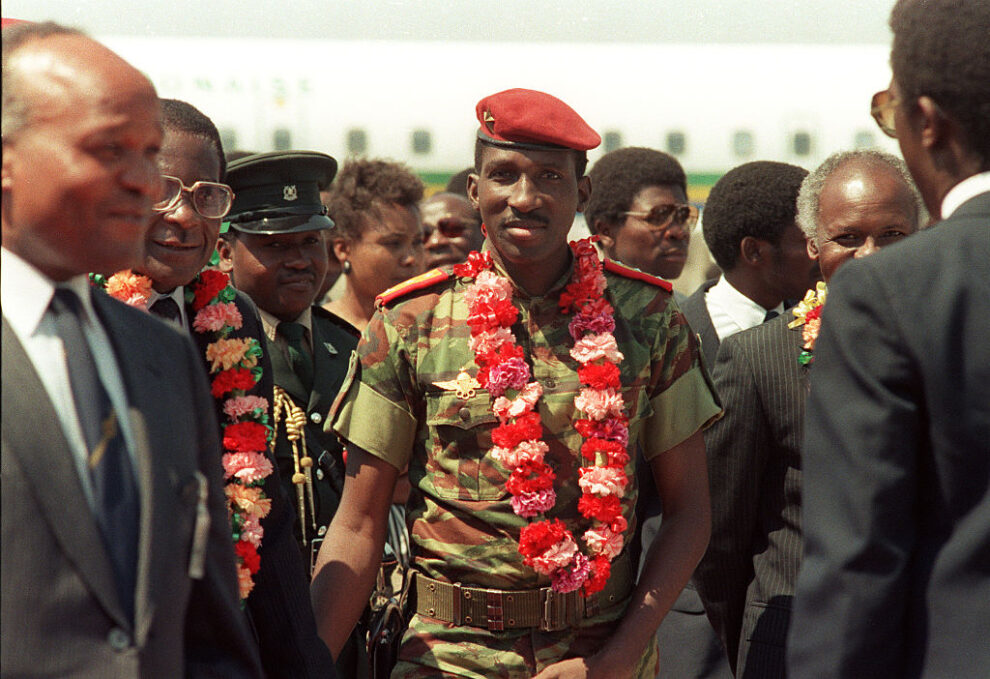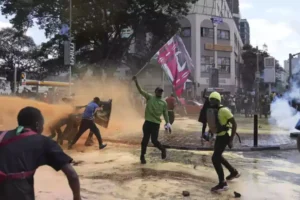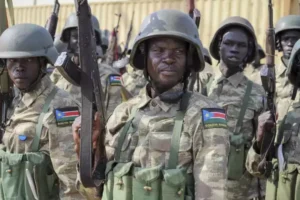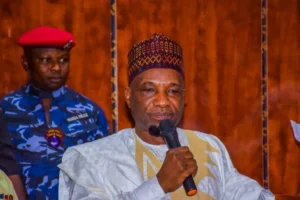The exhumed remains of Burkina Faso’s beloved ex-president Thomas Sankara, whose 1987 assassination rocked the nation, were laid to rest at a ceremony in the capital Ouagadougou.
On Thursday (February 23), Thomas Sankara’s exhumed remains were reburied at a ceremony in Burkina Faso’s capital Ouagadougou. Sankara was a charismatic anti-colonist, whose brief time at the helm of Burkina Faso is remembered for his revolutionary socio-economic and political vision, specifically the rejection of Western economic and political “support” for his West African nation.
Often called “Africa’s Che Guevara”, Sankara was gunned down during a violent coup in 1987, led by his former ally turned foe, Blaise Compaoré. He was only 37 at the time.
Compaoré ruled for nearly three decades, being ousted in 2014. After his ouster, authorities exhumed Sankara’s remains in 2015 to identify them and help with investigations into Sankara’s murder. Last year, Compaoré was handed a sentence in absentia to life imprisonment for complicity in Sankara’s murder. Two of his aides received the same sentence in 2021.
Sankara’s reburial at the scene of his murder, after the completion of the investigation, brought closure to some but the scars from his untimely death run deep.
According to The Jacobin, “Sankara’s leadership was characterised by nationalisation, land redistribution, and expansive railway building programs”. In one of the most successful inoculation drives in Africa at the time, over two million children were vaccinated. He was also one of the first African leaders to raise awareness about HIV AIDS. Sankara also built schools and hospitals across the country and planted over 10 million trees to combat desertification. In just four years of his rule, Burkina Faso had attained food sufficiency.
When asked about his revolutionary goals, Thomas Sankara once said, “Our economic ambition is to use the strength of the people of Burkina Faso to provide, for all, two meals a day and drinking water.”
Burkina Faso was flooded with anti-Thomas Sankara propaganda, which framed the coup as “rectifying the Revolution”. But ideas do not die easily and today, amidst 21st century’s ‘Great Game’ in Africa between the West and China, Sankara’s legacy provides a welcome alternative, based on self-reliance and pan-African solidarity.
Brian Peterson, in his book Thomas Sankara: A Revolutionary in Cold War Africa, wrote that Sankara’s enduring appeal lies in the fact that the conditions which Sankara sought to change continue to plague not just Burkina Faso but all of Africa. Whether it be European mining companies or American Banks, big philanthropists and international development organisations or ‘aid’ from states such as China and the US – all of these continue to keep Africa subservient to foreign interests, and enrich a tiny section of local elites who weild political power.
“Imperialism is a system of exploitation that occurs not only in the brutal form of those who come with guns to conquer territory. Imperialism often occurs in more subtle forms, a loan, food aid, blackmail . We are fighting this system that allows a handful of men on Earth to rule all of humanity,” Thomas Sankara had once said in a speech.
“At the core was his visceral opposition to injustice and a sense of moral outrage at oppression and inequality,” says Peterson in an interview to The Jacobin. Add to that an immensely disciplined and modest lifestyle, it is not hard to see why Sankara still speaks to so many.
Source : The Indian Express



